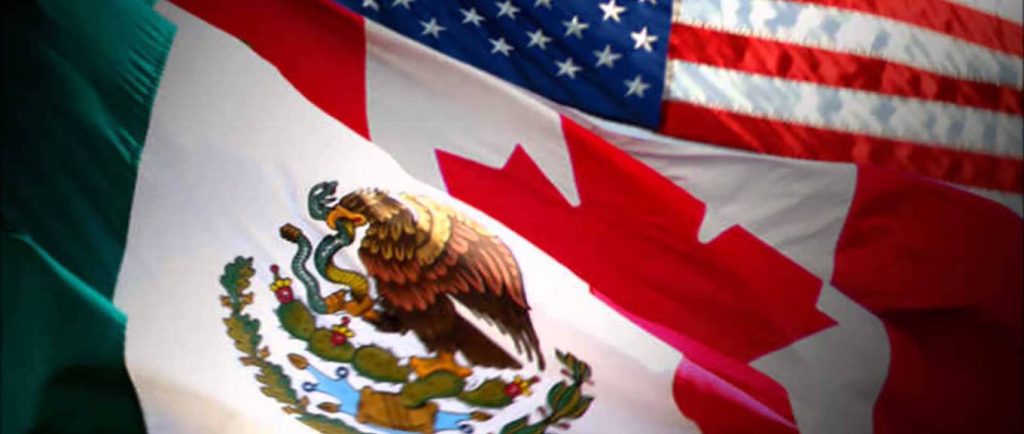As Delivered
August 16, 2017
Washington, DC
AMBASSADOR LIGHTHIZER:
This is an historic day for the United States. Today, for the first time, we will start negotiating to revise a major free trade agreement. American politicians have been promising to renegotiate NAFTA for years, but today President Trump is going to fulfill those promises.
I want to thank members of Congress, and their staffs, who have helped lay the groundwork for these negotiations. We look forward to working with them now and in the future as things proceed.
I would also like to thank the members of our advisory committees, and other stakeholders, who have given USTR their thoughts about how this agreement can be improved. We held three days of hearings, and we received testimony and comments from thousands of stakeholders. Their suggestions are critical to our process, and we appreciate everyone’s help.
First, I know we all agree that NAFTA needs updating. This is a 23 year-old agreement and our economies are very different than they were in the 1990’s. We need to modernize or create provisions which protect digital trade and services trade, e-commerce, update customs procedures, protect intellectual property, improve energy provisions, enhance transparency rules, and promote science-based agricultural trade.
In each of these areas, hopefully we will develop model provisions that can be used for years ahead and that have the flexibility to adapt to future innovations that we can’t even imagine a this point. This is an important part of our process.
After modernizing, the tough work begins. We must balance the legitimate interests of literally millions of people in our countries — those of farmers, and businesses, and workers and yes, families.
Many Americans have benefited from NAFTA. For many of our farmers and ranchers, Canada and Mexico are their largest export markets. Americans send billions of dollars of corn and soybeans, and poultry across our borders to dinner tables throughout North America.
These are hardworking people with families who ask little from their government. Many are particularly vulnerable today because of low commodity prices.
I’ve always thought that communities along our borders have a particular equity in this agreement. In many cases their lives, businesses, and families are very much on both sides of the dividing line. They too are hardworking men and women trying to raise a families and accumulate wealth. We must keep their interests paramount.
But for countless Americans, this agreement has failed.
We cannot ignore the huge trade deficits, the lost manufacturing jobs, the businesses that have closed or moved because of incentives — intended or not — in the current agreement. The numbers are clear. The U.S. Government has certified that at least 700,000 Americans have lost their jobs due to changing trade flows resulting from NAFTA. Many people believe that number is much, much bigger than that. In 1993, when NAFTA was approved, the United States and Mexico experienced relatively balanced trade. However since then, we have had persistent trade deficits – in the last year totaling nearly $57 billion. In the auto sector alone, the U.S. has a $68 billion deficit with Mexico. Thousands of American factory workers have lost their jobs because of these provisions. In recent years, we have seen some improvement in our trade balance with Canada. But over the last ten years, our deficit in goods has exceeded $365 billion.
The views of the President about NAFTA, which I completely share, are well known. I want to be clear that he is not interested in a mere tweaking of a few provisions and a couple of updated chapters. We feel that NAFTA has fundamentally failed many, many Americans and needs major improvement.
Here are some of the examples of what I believe needs to be changed. We need to assure that huge trade deficits do not continue and that we have balance and reciprocity. This should be periodically reviewed. Rules of origin, particularly on autos and auto parts, must require higher
NAFTA content and substantial U.S. content. Country of origin should be verified, not “deemed.” Labor provisions should be included in the agreement and be as strong as possible. The agreement should have effective provisions to guard against currency manipulation. The dispute settlement provisions should be designed to respect our national sovereignty and our democratic processes. We should include provisions to guard against market-distorting practices of other countries, including third-party dumping and state-owned enterprises. We should assure that there is equal access and reciprocity in government procurement and agriculture.
These are just a few examples of key priorities for the United States – but I think they are sufficient to show that our task is a very difficult one. On the other hand, the stakes are high for all of our citizens and the benefits of a good agreement can be substantial.
My hope is that together we will produce a result which moves us to freer markets, fairer and balanced trade, and stronger ties between our three countries. I look forward to working with Secretary Guajardo and Minister Freeland on this very important effort. Thank you very much, and now we will get down to work.
###












